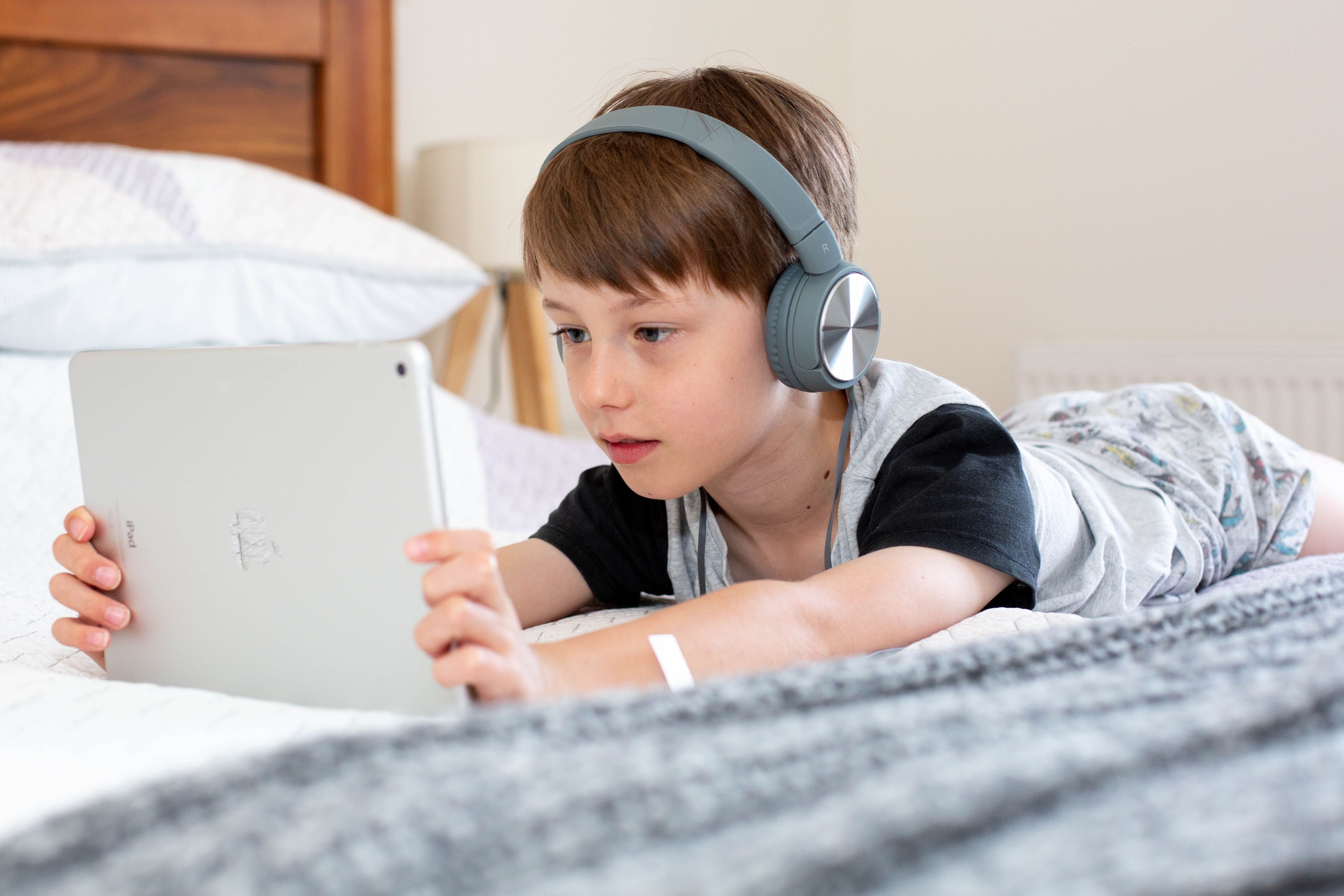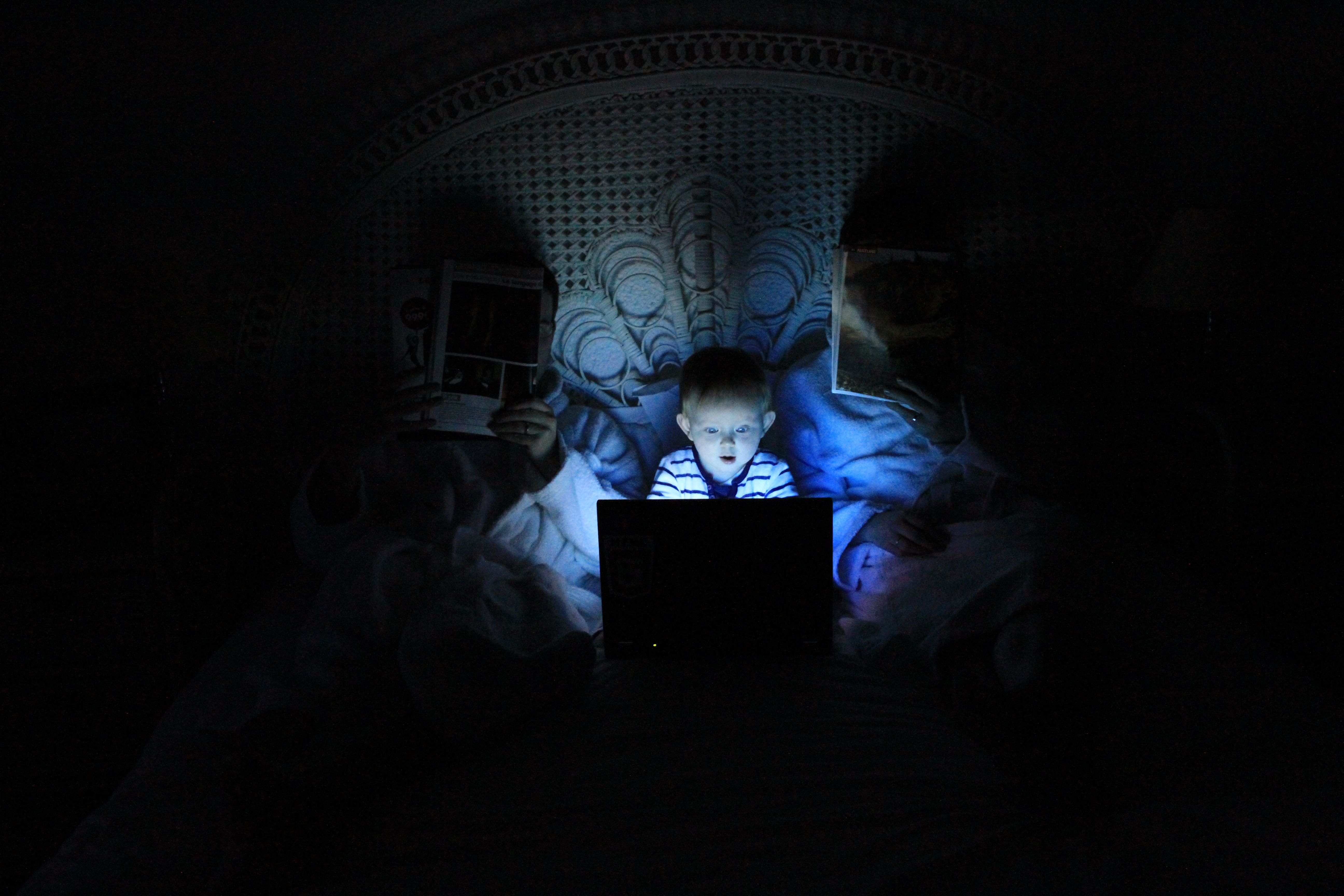We used to say TV raised our kids, but more technological offerings are fighting for your child's attention these days. From social media platforms to video games, technology has an unshakable influence on the development of today's youth.
But we have to question whether this access to tech at such a young age is truly beneficial. And if it isn't, what are the negative effects of technology on your kids? In this article, we will check those out and provide options to help you create a suitable balance that will benefit your children.
6 Negative Effects of Technology on Children
Children are becoming more tech-savvy at a much younger age to either prepare them for schooling or as a way to occupy their time. Parenting is not an easy feat, and it may be tempting to calm a child down by just handing them a phone/tablet so they can get stuff done. Don't worry; every parent does it! But this constant preoccupation with technology generates some concerning health, mental, social, and safety issues.
Some of the negative effects of technology on children include diminished attention span, health issues, and poor sleep quality among others. Let's take a look in closer detail.
1. Shorter Attention Span

Our brains are designed to respond to stimuli, and thanks to technology, we are bombarded by a constant stream of news and videos. Because of this abundance of options, online consumers have grown increasingly shorter attention spans; there's always something new to get to, something else to watch. To cater to the needs of such an audience, online content has also gotten increasingly shorter.
This always-on, fast-paced switching of content can have an adverse effect on young children who are constantly exposed to it. Between social media, TVs, and the internet, our children's brains are learning how to switch instantly between different and sometimes unrelated events. Their brains, which are still developing, will get wired to multi-task to such a high degree that they find it difficult to focus on one task or thought.
Pediatrics published a study on the effects of constant television viewing and video gaming on children's behaviors. It involved over 1,300 children for over a year and with an age range of 6-12 years. With an average screen time of over four hours, teachers of the kids involved reported attention problems in most of them. Another study corroborated these findings and also suggested the effects may be long-lasting.
2. Health Problems
A major side effect of excessive use of technology by children is the resulting health problems it creates. They engage less in physical activities as more sedentary time is spent using a phone, playing video games, or watching TV. This encourages mindless snacking, which ends up causing significant weight gain. Researchers have found a strong link between lack of exercise due to excessive computer and television use to obesity in children.
Other health issues include:
- An increase in the chance of tendonitis in the thumb caused by repeated use of the thumb when gaming or typing
- Eye Strain due to long hours of staring at bright screens at close distance
- Poor sitting posture
- Hearing loss because of excessive use of headphones with loud music on
- Constant neck pain
- Recurring headaches
3. Reduced Sleep Quality

Children now have access to media content at any time of the day because of portable devices like smartphones and tablets. This means they could spend all night responding to texts and messages instead of sleeping. Sleep is required for better physical and mental health, and children require a significant amount of sleep.
A US National Institute of Child Health and Human Development study found that media use before bedtime affected children's sleep. And a study from JAMA Pediatrics corroborated this and found that children that use media before sleep were more likely to have poor sleep quality. The effect of this is reduced alertness in children, excessive daytime sleepiness, and the onset of several sleeping disorders.
4. Behaviour and Emotional Issues

Technology, especially social media, has provided a trigger for insecurities among children. Children who are easily susceptible to negative influence can easily be overwhelmed by the need to copy the actions of their friends or heroes. This can lead to anxiety or a sense of inadequacy and inferiority when they can't meet up or do what they watch online. An issue known as FOMO (Fear Of Missing Out) develops, which is a toxic blend of anxiety and inadequacy.
The internet provides an avenue for kids to get emotionally harassed, and kids who are always online can be easily targeted. One in three teenagers reported being victims of cyberbullying, a horrific statistic that shows the depth of this problem. In addition, a study published in the SAGE journals found that children with repeated use of social media devices reported more mental health issues. Also, a study in the International Journal of Child Health and Human Development found 30 percent of the 1,500 kids in the study who used the internet for over 3 hours were diagnosed with depression.
5. Weak Social Skills
Constant use of tech devices as a way of interacting can stunt the development of necessary social skills. These social skills are mastered during daily physical interactions, and overuse of tech displaces time spent in social interactions. Social skills like knowing when to take turns in conversations, reading and using facial expressions, appropriate eye contact, and changing your tone based on whom you are speaking to. All these skills require face-to-face engagement to hone them properly.
Also, children with increased excessive technology use normalize bad social behaviors like bullying and rudeness, which is very common online. A study published by BMC Public Health shows a link between screen time and negative social skills in toddlers, especially in interactions with others.
6. Exposure to Explicit Content and Safety Issues
This is the most concerning impact of unsupervised technology use in children. With the amount of explicit material online, children with unchecked technology access are bound to be exposed. Most sites that display this don't offer any form of age blocks, meaning kids could easily view them. Also, children can easily be manipulated by malicious individuals online into sending explicit images of themselves. These individuals can use your kids as a source for your financial and security information.
What Can You Do?

These are some steps you can take to find the right balance of technology use for your children:
1. Encourage and Facilitate More Outdoor Activities
Children might find it more interesting to play video games or watch TV, but it is crucial that you make sure they are spending adequate time outside. Ensure they partake in more physical activities by encouraging them to play games like hide-and-seek and play catch. The increased physical activity will burn calories, reduce obesity risks, and support muscle development. Besides, this helps them build social skills and relationships with playmates and peers.
2. Regulate Screen Time

Put restrictions on the time your children spend using technological devices. This will reduce the chance of eye strain, neck pain, or other health issues that arise from long screen time. You can teach them to practice the 20-20-20 rule recommended by the American Optometric Association. To use this rule, after every 20 minutes of screen time, take a 20-seconds break to look at something 20 feet away.
3. Use Parental Control Tools
There are several parental control tools, but they fall into four basic categories:
- Content Filters: You use these apps to limit access to age-inappropriate content. You could restrict your kids to a kids-based entertainment service, for which you could check out our list of the best streaming services for kids.
- Usage Control: These are for placing time-based restrictions to limit the usage of gadgets. For example, if you use an iPhone, you can hide and restrict apps on your iPhone to keep them out of your kid's access. Similar options exist for Android devices, too.
- Computer Management Tools: These are for ensuring only certain software or apps are used. If you use a PC, you can make Windows child-friendly with a few easy steps or use parental control apps for Windows to regulate what your kid has access to online.
- Monitoring Tools: These are for checking location and tracking activity usage on your children's devices.
Related: The Complete Guide to Parental Controls
Apply these controls, putting restrictions on age, time, and usage of technological devices for your kids. However, it is important to communicate with your kids when you put these measures in place, letting them understand the dangers of the internet and how the restrictions are for their safety. This is because smart, tech-savvy children can circumvent parental controls or app restrictions. They may find a way, whether through simple methods like uninstalling browser extensions or switching to a different device, or through more devious methods like using a proxy server or resetting device options. The less strict you are, the less likely it is that your children will try to circumvent parental controls.
4. Spend Time With Your Kids

Technology can not be a replacement for parental care. Parents should carve out times free of electronic devices so families can interact and build social bonds. Instead, you should find engaging physical activities you can play along with your kids, or even just some quality family time playing a board game or otherwise.
Get Creative and Intentional With Parenting
Technology is not going anywhere, so we have to find beneficial use of them for our children. Prioritize your kid's safety and well-being online, but by all means, lookout for ways that you can take advantage of technology for their growth and skills development.
